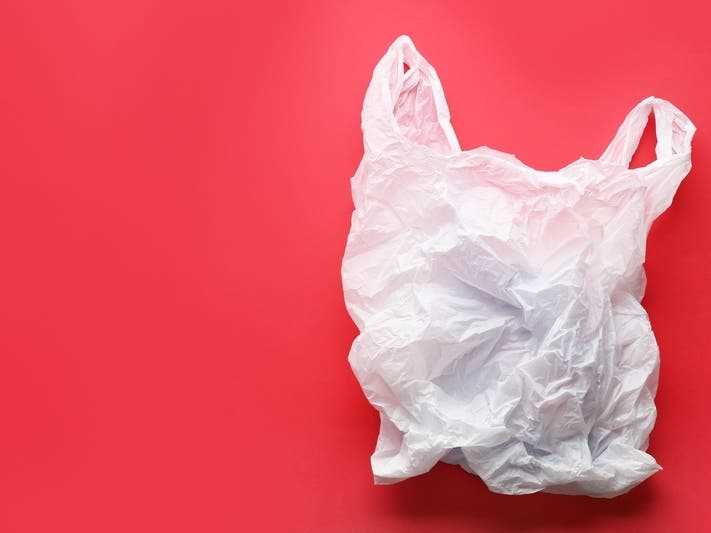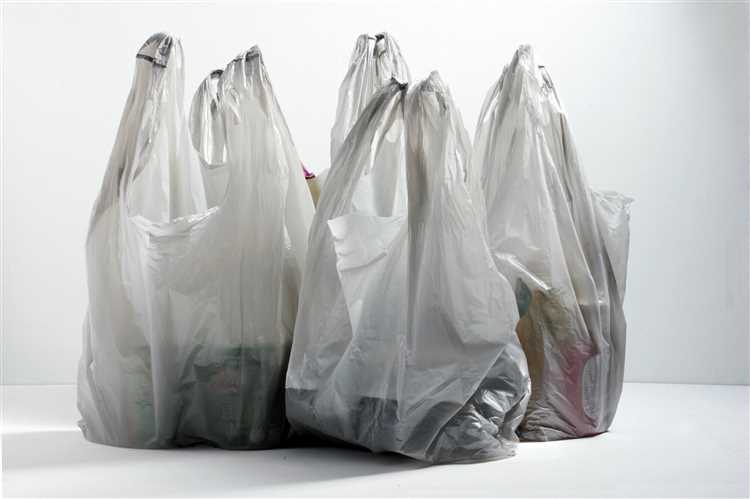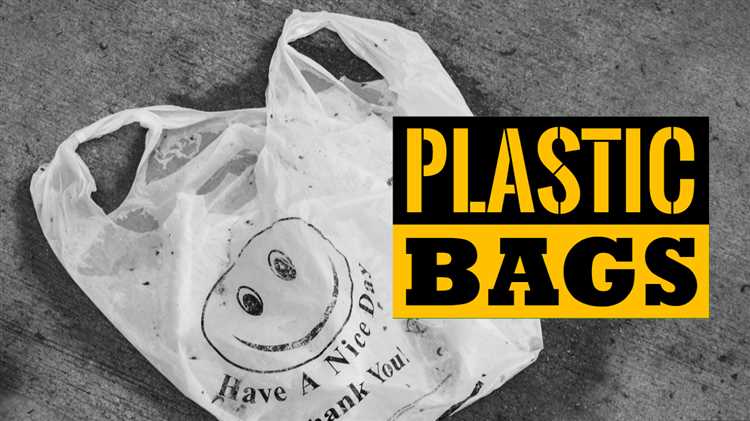
In recent years, there has been a growing concern over the environmental impact of plastic bags. As a result, many states and cities across the United States have implemented various regulations to reduce their use. One such regulation that has been implemented in several states is the plastic bag fee or tax. This fee is intended to encourage consumers to bring reusable bags and discourage the use of single-use plastic bags. Maryland is one of the states that have taken action in this regard.
Starting from October 1, 2021, a plastic bag fee of 10 cents per bag is in effect in Maryland. This fee applies to most retail establishments, including grocery stores, convenience stores, and pharmacies. The aim of this fee is to reduce the consumption of single-use plastic bags and encourage the use of reusable bags. By implementing this fee, Maryland joins other states such as California, New York, and Hawaii in addressing the issue of plastic waste.
The plastic bag fee in Maryland is not without controversy. While many environmentalists applaud the move as a step in the right direction, some argue that it places an unfair burden on consumers, especially those from low-income backgrounds. However, studies from other states that have implemented similar fees have shown that they can effectively reduce plastic bag usage by up to 80 percent. This reduction in plastic bag consumption can have a significant positive impact on the environment by reducing litter, saving marine life, and conserving resources.
With the plastic bag fee in place, Maryland residents and visitors are encouraged to bring their own reusable bags when shopping. These bags can be made of sturdy materials such as cloth, canvas, or recycled plastics. By adopting this simple habit, individuals can contribute to reducing plastic waste and protecting the environment for future generations. So, next time you visit Maryland, don’t forget to bring your reusable bags and join the movement to combat plastic pollution!
- Is There a Plastic Bag Fee in Maryland?
- What You Need to Know
- Plastic Bag Fee
- Exemptions
- Benefits of the Plastic Bag Fee
- Policies in Other States
- Impact on the Environment
- 1. Pollution
- 2. Waste and Landfill Overflow
- Arguments for the Plastic Bag Fee
- Arguments Against the Plastic Bag Fee
- 1. Increased Costs for Consumers
- 2. Negative Impact on Small Businesses
- 3. Ineffectiveness in Reducing Waste
- Q&A,
- Is there a plastic bag fee in Maryland?
- Why did Maryland implement a plastic bag fee?
- How does the plastic bag fee work in Maryland?
- Are there any exemptions to the plastic bag fee in Maryland?
- What happens to the money collected from the plastic bag fee in Maryland?
Is There a Plastic Bag Fee in Maryland?
As of October 1, 2021, there is a plastic bag fee in Maryland. The fee is $0.10 per bag and applies to both paper and plastic bags provided by retail establishments. This fee is part of Maryland’s efforts to reduce single-use plastic waste and promote a more sustainable environment. By discouraging the use of disposable bags, the state aims to encourage residents and businesses to switch to reusable bags or opt for alternative eco-friendly options.
The plastic bag fee was first implemented in Montgomery County in 2012 and has since been adopted by other counties and the entire state. The fee applies to most types of retail establishments, including grocery stores, convenience stores, pharmacies, and department stores. However, there are some exemptions, such as bags used for prescription medication, newspaper bags, and bags provided for bulk purchases of certain items like fruits and vegetables.
The revenue generated from the plastic bag fee is used for various purposes, including funding environmental programs, promoting waste reduction initiatives, and supporting recycling efforts. Retail establishments are required to report and remit the collected fees to the Maryland Department of the Environment on a regular basis.
It is important for Maryland residents and visitors to be aware of the plastic bag fee and to prepare accordingly when shopping. Bringing reusable bags or paying the fee for each bag used can help reduce plastic waste and contribute to a cleaner and greener Maryland.
What You Need to Know
If you’re living in or visiting Maryland, it’s important to be aware of the plastic bag fee policy that is in effect. Here are a few key things you need to know:
Plastic Bag Fee
In an effort to reduce plastic waste and promote environmental sustainability, Maryland has implemented a plastic bag fee. As of October 1, 2021, all retail establishments in the state are required to charge customers 10 cents per plastic bag used for carrying their purchased items.
Exemptions
There are, however, a few exemptions to this fee. Certain types of bags, such as those used for carrying produce, prescription drugs, or newspapers, are exempt from the plastic bag fee. Additionally, customers who participate in the Supplemental Nutrition Assistance Program (SNAP) are also exempt from paying the fee.
Benefits of the Plastic Bag Fee
The implementation of the plastic bag fee aims to encourage consumers to bring their own reusable bags when shopping. By charging a fee for plastic bags, Maryland hopes to incentivize the use of more sustainable alternatives and reduce the amount of plastic waste that ends up in landfills and waterways.
Furthermore, the revenue generated from the plastic bag fee is used to support environmental programs and initiatives within the state. This includes efforts to improve recycling systems, promote litter prevention, and raise awareness about the importance of reducing plastic consumption.
By adopting this policy, Maryland is taking a step towards a more sustainable future and encouraging citizens to be more conscious of their environmental impact.
Policies in Other States
While Maryland is not the only state implementing a plastic bag fee, there are a variety of policies in place across the United States. Some states have banned plastic bags altogether, while others have implemented fees similar to Maryland’s.
Oregon
Oregon has banned single-use plastic bags at grocery stores. This ban includes any plastic bags that are less than 4 millimeters thick. The ban does not apply to bags used for fruits, vegetables, meats, or prescription drugs.
California
California was the first state to implement a statewide ban on single-use plastic bags at large retail stores. The ban later expanded to include smaller businesses as well. Shoppers in California are encouraged to bring their own reusable bags or pay a small fee for paper bags.
Hawaii
Hawaii became the first state in the United States to ban plastic bags in all counties. The ban includes both single-use plastic bags and compostable bags, with limited exceptions for certain types of businesses.
New York
New York has implemented a plastic bag ban, which went into effect in 2020. The ban prohibits most retailers from giving out plastic bags and requires them to charge at least 5 cents for each paper bag provided to customers.
Please note that policies may change over time, and it is always best to check the most up-to-date information regarding plastic bag regulations in each state.
Impact on the Environment
Plastic bag usage has a significant impact on the environment, both locally and globally. The production, consumption, and disposal of plastic bags contribute to various environmental issues:
1. Pollution
Plastic bags are a major source of pollution, especially in marine environments. When not properly disposed of, they end up in waterways, where they pose a serious threat to marine life. Animals like turtles, seabirds, and marine mammals often mistake plastic bags for food, leading to ingestion and entanglement. This pollution also affects the overall balance of marine ecosystems.
2. Waste and Landfill Overflow
The use of plastic bags contributes to the accumulation of waste in landfills. Since plastic bags are not biodegradable, they remain in the environment for hundreds of years. Landfills quickly become overwhelmed with these non-biodegradable bags, taking up valuable space and releasing harmful greenhouse gases as they decompose.
3. Energy and Resources Consumption
The manufacturing of plastic bags requires significant amounts of energy and resources. The extraction of crude oil, which is the main ingredient in plastic bags, contributes to environmental degradation and climate change. Moreover, the production process itself releases large amounts of greenhouse gases into the atmosphere.
In conclusion, the environmental impact of plastic bag usage is severe and far-reaching. By reducing plastic bag consumption, we can mitigate pollution, waste accumulation, and the depletion of natural resources. Implementing measures such as a plastic bag fee in Maryland can help promote responsible and sustainable practices while protecting our ecosystems.
Arguments for the Plastic Bag Fee
Supporters of the plastic bag fee in Maryland argue that implementing such a measure can have several positive impacts:
- Reduction in plastic bag consumption: One of the primary arguments for the plastic bag fee is that it helps reduce the consumption of single-use plastic bags. By placing a financial charge on these bags, it encourages individuals to bring their own reusable bags or seek alternative packaging options, thereby decreasing the overall demand for plastic bags.
- Protecting the environment: Plastic bags are known to have a detrimental impact on the environment. They contribute to pollution, harm wildlife, and take hundreds of years to decompose. Implementing a plastic bag fee can help mitigate these negative effects by reducing the number of bags that end up in landfills, oceans, and other natural areas.
- Promoting sustainability: The plastic bag fee serves as a way to promote sustainability and raise awareness about the importance of reducing waste. By implementing such a measure, it sends a clear message to consumers and businesses that they should prioritize more sustainable, eco-friendly practices and packaging options.
- Generating revenue for the state: Another argument in favor of the plastic bag fee is that it can generate revenue for the state. The funds collected from the fee can be used to support various environmental initiatives, such as recycling programs, waste management infrastructure, and educational campaigns.
- Encouraging responsible consumer behavior: By implementing a plastic bag fee, it encourages individuals to be more conscious of their consumption habits and make more environmentally responsible choices. This can lead to a long-term change in behavior, as individuals become more mindful of the impact their choices have on the planet.
Overall, implementing a plastic bag fee in Maryland can have numerous benefits, including a reduction in plastic bag consumption, protection of the environment, promotion of sustainability, generation of revenue for the state, and encouragement of responsible consumer behavior. These arguments highlight the potential positive impact of such a measure on both the environment and the local economy.
Arguments Against the Plastic Bag Fee

While there are proponents of the plastic bag fee who argue that it is a necessary measure to reduce waste and protect the environment, there are also those who oppose it for various reasons. Some of the arguments against the plastic bag fee are:
1. Increased Costs for Consumers
Opponents of the plastic bag fee argue that it places an additional financial burden on consumers. They claim that households already bear the weight of numerous taxes and fees, and an added charge for plastic bags is unnecessary and unfair.
2. Negative Impact on Small Businesses
Small businesses, especially grocery stores and convenience stores, may be negatively affected by the plastic bag fee. Critics argue that customers may choose to shop elsewhere or bring their own reusable bags to avoid the additional charge, which could result in a loss of revenue for these businesses.
3. Ineffectiveness in Reducing Waste

Skeptics of the plastic bag fee argue that the measure may not be effective in reducing waste. They claim that consumers who are willing to pay the extra fee will continue to use plastic bags, while those who are unwilling to pay will simply switch to other types of disposable bags, which may not be any more environmentally friendly.
| Argument | Counterargument |
|---|---|
| The plastic bag fee unfairly targets low-income households. | Proponents argue that reusable bags can be provided for free or at a reduced cost to low-income households to mitigate any potential inequities. |
| The plastic bag fee does not address the root causes of waste and pollution. | While it may not solve all environmental problems, the plastic bag fee is seen as a tangible step towards reducing single-use plastic consumption and promoting eco-friendly alternatives. |
| The plastic bag fee is unnecessary since many consumers already choose to bring their own reusable bags. | While it is true that some consumers are environmentally conscious and bring their own bags, many others still rely on plastic bags as their primary choice. The fee can act as a deterrent for the latter group. |
Overall, those against the plastic bag fee argue that there are alternative approaches to reducing waste and promoting sustainability that may be more effective and fair. They believe that imposing a fee on plastic bags is not the optimal solution and may have unintended negative consequences.
Q&A,
Is there a plastic bag fee in Maryland?
Yes, there is a plastic bag fee in Maryland. The state passed a law in 2020 that requires a 5-cent fee for each plastic bag provided by retailers.
Why did Maryland implement a plastic bag fee?
Maryland implemented a plastic bag fee to reduce the use of disposable plastic bags and encourage consumers to switch to reusable bags. The fee is meant to discourage the use of single-use plastics and promote environmentally-friendly alternatives.
How does the plastic bag fee work in Maryland?
The plastic bag fee in Maryland works by requiring retailers to charge customers 5 cents for each plastic bag provided at the checkout. The fee is not mandatory if the customer brings their own reusable bag. The revenue generated from the fee is intended to support environmental initiatives and education programs.
Are there any exemptions to the plastic bag fee in Maryland?
Yes, there are some exemptions to the plastic bag fee in Maryland. The fee does not apply to bags used for fresh produce, meat, or seafood. It also does not apply to bags used for prescription medication or newspaper delivery. Additionally, the fee does not apply to bags provided by food banks or other charitable organizations.
What happens to the money collected from the plastic bag fee in Maryland?
The money collected from the plastic bag fee in Maryland is intended to support environmental initiatives and education programs. It may be used for projects such as litter cleanup, recycling programs, and public awareness campaigns about the environmental impact of plastic bags.